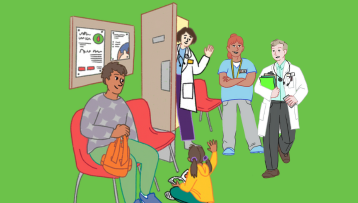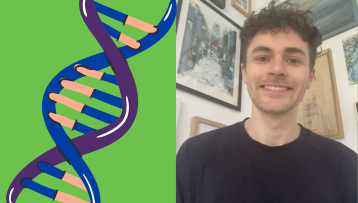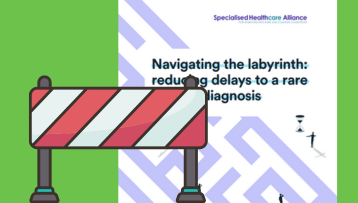Exclusive: NHS England drug delay led to ‘absolutely preventable’ deaths
17 March, 2015 | By Shaun Lintern
A two year delay in NHS England drawing up a prescribing policy for a licensed drug has led to at least two ‘absolutely preventable’ deaths and more than 30 adults and children left at significant risk, HSJ has been told.
Families, doctors and charities have criticised the national commissioning body for not having a policy for the drug everolimus in the treatment of a genetic disorder called tuberous sclerosis complex, or TSC.
The condition causes the growth of tumours in organs including the brain, eyes, heart, kidneys, skin and lungs.
Everolimus has been shown to be effective at shrinking these tumours, extending life and improving quality of life, but despite being licensed for use in TSC patients in February 2013 NHS England has failed to draw up a prescribing policy.
Bethany Henry, 9, suffers up to 50 seizures a day from the condition
The drug is not eligible to be considered for TSC by the National Institute for Health and Care Excellence because it is too rare a condition.
However, because there are more than 30 patients in urgent need, it is also not possible for clinicians to bid for exceptional funding from NHS England, which limits this to five or less a year. The Tuberous Sclerosis Association said many requests had been turned down or not considered.
Jayne Spink, chief executive of the charity, told HSJ this meant adults and children at significant risk had no access to treatment.
She said: “The sad reality is that some people will most likely die preventable deaths without treatment and they will be dying for want of a policy.
“No one should be put in the place of facing their own death, or their children’s death, because of bureaucratic slowness.”
Ms Spink said she had written to ministers including the health secretary, adding it was “disingenuous” of the government to call for action on avoidable harm in the NHS while at the same time “ignoring preventable harm and risk of death for a minority of patients where there is a solution”.
HSJ has learned of at least two patients who have died since the drug, which costs around £30,000 a year, was licensed.
Julie Brooker died aged 44 in January last year from a renal bleed caused by a tumour in her kidneys. Despite a plan by doctors to treat her with everolimus in August 2013, Ms Brooker, who had severe learning difficulties, was unable to have the drug prescribed.
Chris Kingswood, a consultant nephrologist who oversaw Ms Brooker’s care, said her death was “absolutely preventable”. He added: “We know how effective the treatment is. With 95 per cent certainty we would have been able to successfully treat her and avoid the distress she had.”
Dr Kingswood said everolimus made “a miraculous difference” for TSC patients and “gives them years of good health”.
Dr Kingswood, who runs a TSC clinic at St George’s Hospital in London, said there were at least 32 people needing treatment with 15 facing death, loss of their kidneys or risk of a serious bleed.
Ms Brooker’s mother Wendy Hunnisett said: “I do think Julie would be here with me now if she had received the drug.
“It makes me feel angry, all of her life I had to fight for everything she needed from the NHS. The government doesn’t want to spend money on certain types of children and because TSC isn’t very well known it doesn’t matter to them.”
Another TSC patient, a man in his 20s, who could have received treatment with everolimus, died earlier this year, Dr Kingswood said.
The Department of Health declined to comment when approached by HSJ.
NHS England said it was “considering the formation of clinical policy on everolimus for a number of indications as part of our work programme for the coming year, along with a large number of other competing priorities, including working with NICE to determine whether any of those indications will be included in their work programme”.
TSC patients at risk
William Davis, aged 15 from Bury St Edmonds, has a kidney tumour at risk of bleeding as well as nodules growing in his lungs and brain.
His mother Paula Davis said: “Knowing that there is something out there that might save my son’s life but we are not getting it because of bureaucracy and bad timing is heart breaking. It just isn’t fair. I would ask NHS England and [chief executive] Simon Stevens to imagine if it was their child.”
Bethany Henry, aged 9, has severe insomnia and up to 50 seizures a day related to TSC, with tumours in her kidneys, liver and brain. Her father Luke said without everolimus treatment Bethany could lose her kidneys or liver, which would cost the NHS more money in treatment than the drug, adding:
“We don’t want to think about what comes after that, she has no other chance. I want to know what Simon Stevens is doing about this. [NHS England] can do so many different things when they want to.”
ENDS
Read the article on HSJ’s website here
Join the debate on social media #Fight4Treatment #FundourdrugsNOw
Tell David Cameron to do something about it here










































































































































